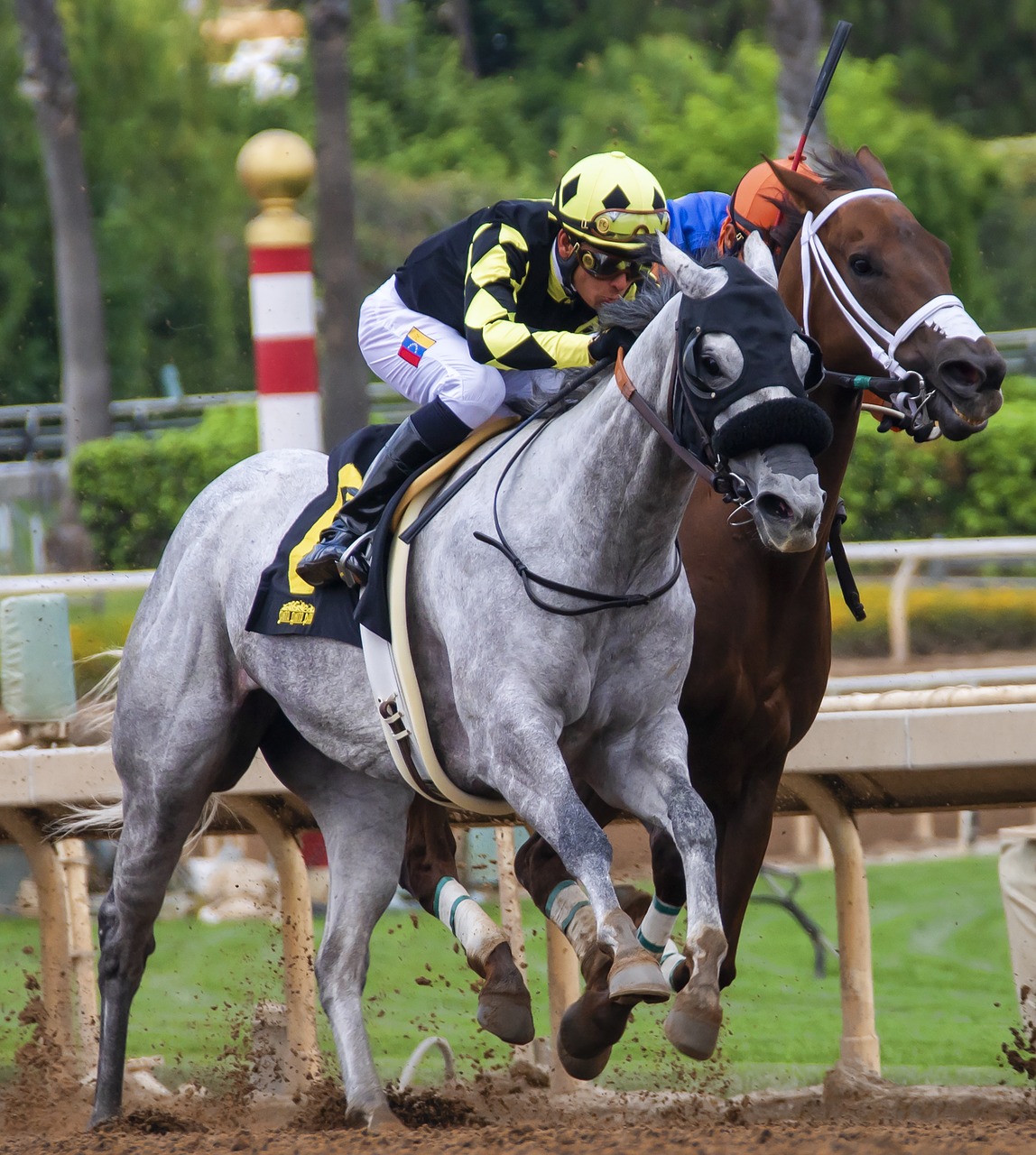1. Introduction to Sports Betting
As the excitement of sports continues to captivate fans around the world, many have discovered an additional layer of thrill and engagement through sports betting. Whether you’re a casual observer or a passionate enthusiast, understanding the fundamentals of sports betting can enhance your overall experience and potentially turn your knowledge into profitable outcomes. This beginner’s guide aims to provide you with the necessary insights and knowledge to navigate the world of sports betting with confidence. From the different types of bets to comprehending odds and developing effective strategies, this article will equip you with the fundamentals to make informed decisions and maximize your chances of success in the exhilarating realm of sports betting.
Understanding the Odds: A Beginners Guide to Sports Betting
1. Introduction to Sports Betting
1.1 What is Sports Betting?
Sports betting is like taking your love for sports to the next level. It’s a thrilling way to put your knowledge and predictions to the test by placing bets on various sports events. Whether you’re a die-hard fan or just someone looking for some extra excitement, sports betting offers a whole new level of engagement with the games you love.
1.2 The Popularity of Sports Betting
It’s no secret that sports and betting go hand in hand. People have been placing bets on sports for centuries, and it’s only gotten more popular over time. With the rise of online betting platforms, anyone can now join in the fun and potentially win some money. The thrill of watching a game becomes even more intense when you have a stake in the outcome. Plus, it’s a great conversation starter at parties – just make sure to share your winnings with the host!
2. Types of Sports Bets
2.1 Moneyline Bets
Moneyline bets are the simplest and most common types of bets. Here, you’re simply picking the team or player you think will win the game. The odds are expressed as either positive or negative numbers, indicating the potential payout if your bet is successful. Positive odds mean you’ll win more than your initial wager, while negative odds mean you’ll have to bet more than your potential winnings to make a profit. It’s all about finding the right balance between risk and reward.
2.2 Spread Betting
Spread betting adds a little twist to your betting experience. Instead of just picking the winner, you need to consider the point spread set by bookmakers. The favorite team must win by a certain number of points, while the underdog needs to either win outright or lose by fewer points than the spread. It adds an extra layer of excitement, as even a seemingly one-sided game can become interesting when points are involved.
2.3 Over/Under Bets
If you enjoy analyzing statistics and predicting the total score of a game, over/under bets are for you. Bookmakers set a line for the total points scored in a game, and you have to decide whether the actual score will be over or under that line. It’s like a game within a game, and it can keep you on the edge of your seat until the final buzzer.
2.4 Parlay Bets
Parlay bets are for the ambitious bettors who like to dream big. Rather than placing a single bet, you combine multiple bets into one ticket. The catch is that all your selections must win for you to claim the jackpot. It’s like hitting a bullseye while blindfolded – difficult, but oh so rewarding if you manage to make it happen.
3. Understanding Odds and Probability
3.1 Decimal Odds
Decimal odds are the most common format used worldwide. They represent the potential payout per unit staked, including your initial wager. For example, if the odds are 2.50, you would receive $2.50 for every $1 you bet, including your original stake. It’s like getting a bonus every time you win.
3.2 Fractional Odds
Fractional odds are popular in the UK and are expressed as a fraction, such as 2/1 or 5/2. The first number represents the potential profit, and the second number is the amount you need to stake. For instance, with 2/1 odds, you would win $2 for every $1 bet. It’s simple math, but it can make you feel like a mathematical genius!
3.3 Implied Probability
Implied probability is the likelihood of an outcome as suggested by the odds. To calculate it, divide 1 by the decimal odds and multiply by 100. For example, if the odds are 2.00, the implied probability is 50% (1/2.00 * 100). It helps you understand the bookmaker’s perception of the event’s likelihood and identify potential value bets.
4. Key Factors to Consider in Sports Betting
4.1 Researching the Teams and Players
Knowledge is power when it comes to sports betting. Dig into team stats, player performance, and head-to-head records. Keep an eye on injuries, suspensions, and any other relevant news. The more you know, the better equipped you’ll be to make informed betting decisions. Just don’t let your newfound expertise go to your head at the next family gathering.
4.2 Analyzing Statistics and Trends
Numbers never lie – well, most of the time. Dive into the world of statistics and trends to identify patterns that can give you an edge. Look at historical data, such as team performance in certain weather conditions or player success against specific opponents. However, remember that even the most promising trends can be broken, so don’t bet your life savings on a hunch.
4.3 Evaluating Injuries and Suspensions
Injuries and suspensions can significantly impact a team’s performance. Be sure to stay up to date with the latest news on injuries and disciplinary issues. A star player being sidelined can change the game entirely, so adjust your bets accordingly. It’s like playing chess – anticipate your opponent’s moves and make your bets strategically.
Now that you have a basic understanding of sports betting, go forth and have some fun! Remember to gamble responsibly, and may the odds be ever in your favor – or at least slightly in your favor. Happy betting!
5. Developing a Betting Strategy
5.1 Setting Realistic Goals
Setting realistic goals is crucial when it comes to sports betting. While hitting that big jackpot might be tempting, it’s important to remember that betting is not a guaranteed way to make money. Instead, approach betting with the goal of consistent and sustainable profit. Set reasonable targets, such as aiming for a certain percentage of winning bets or a specific monthly profit. This way, you can measure your success and adjust your strategy accordingly.
5.2 Choosing the Right Sports and Leagues
When it comes to sports betting, not all sports and leagues are created equal. It’s essential to focus on the sports and leagues that you have a good understanding of and can gather reliable information about. Whether you’re an expert on football or a basketball enthusiast, sticking to what you know will give you an edge when making informed decisions. Don’t be tempted to bet on every sport just because it’s available – quality over quantity is key.
5.3 Implementing a Systematic Approach
In sports betting, hunches and gut feelings won’t get you very far. To increase your chances of success, it’s crucial to implement a systematic approach. This means developing a set of rules and strategies to guide your betting decisions. Consider factors like team form, player injuries, historical data, and statistical analysis. By following a systematic approach, you’ll reduce the risk of impulsive and irrational bets, improving your overall profitability.
6. Managing Your Bankroll
6.1 Determining Your Betting Budget
Before you dive into sports betting, it’s crucial to determine your betting budget. Set aside money that you’re comfortable with potentially losing – after all, there are no guarantees in betting. Don’t bet with money that is earmarked for essential expenses like rent or bills. By having a clear betting budget, you’ll have better control over your finances and won’t be tempted to chase losses or bet more than you can afford.
6.2 Setting Proper Stake Sizes
Once you have your betting budget established, it’s important to set proper stake sizes for each bet. As a general rule of thumb, it’s recommended to bet around 1-2% of your total bankroll on each wager. This strategy allows for long-term sustainability and minimizes the risk of significant losses. Avoid the temptation to go all-in on a single bet, as it can lead to disaster if luck isn’t on your side.
6.3 Establishing Loss Limits and Win Goals
To protect yourself from significant losses, it’s vital to establish loss limits. Determine a predetermined amount that you’re willing to lose in a day, week, or month. If you reach that limit, step away and resist the temptation to chase losses. Similarly, set win goals to avoid becoming greedy. Once you reach a reasonable profit target, consider withdrawing some funds and celebrating your success. Remember, it’s better to walk away with a modest profit than to risk losing it all.
7. Common Sports Betting Mistakes to Avoid
7.1 Chasing Losses
One of the biggest mistakes novice bettors make is chasing losses. When you’re on a losing streak, it’s easy to get desperate and place impulsive bets hoping to recover your losses. However, this usually leads to even more losses. Instead, stay disciplined and stick to your strategy. Losing is a part of sports betting, and it’s important to accept losses as a learning opportunity rather than trying to immediately recoup them.
7.2 Betting with Emotions
Sports can evoke strong emotions, and it’s crucial to separate your emotions from your betting decisions. Betting based on your gut feeling or supporting your favorite team blindly can be a recipe for disaster. Instead, rely on logic, research, and data to inform your bets. Don’t let love or hate cloud your judgment – in the world of sports betting, objectivity is your best friend.
7.3 Ignoring Bankroll Management
Proper bankroll management cannot be stressed enough. Ignoring it is a surefire way to quickly deplete your funds. Stick to your predetermined stake sizes, loss limits, and win goals. Remember, your bankroll is your lifeline in sports betting, and protecting it should be your utmost priority. Even if you have a winning streak, don’t throw caution to the wind – always stick to your bankroll management strategy.
8. Tips for Successful Sports Betting
8.1 Keeping Records of Your Bets
Keeping records of all your bets is crucial for successful sports betting. This not only helps you track your progress but also allows you to analyze your wins and losses. By reviewing past bets, you can identify patterns, strengths, and weaknesses in your strategy. It’s also a great way to stay organized and avoid making repetitive mistakes.
8.2 Utilizing Betting Tools and Resources
In the digital age, there are numerous tools and resources available to help you make more informed betting decisions. From statistical analysis websites to expert opinions, take advantage of these resources to enhance your understanding of the odds. However, remember to use them as a supplement to your own research and analysis rather than relying solely on them.
8.3 Learning from Wins and Losses
Every win and loss is an opportunity to learn and improve as a bettor. When you win, analyze what went right and replicate those strategies. When you lose, identify what went wrong and adjust your approach accordingly. A successful bettor is always willing to adapt and refine their strategy based on past experiences. Learn from both your triumphs and failures, and you’ll continuously grow as a sports bettor.
With the knowledge gained from this beginner’s guide to sports betting, you are now equipped to embark on your own betting journey. Remember, success in sports betting requires a combination of research, strategy, and disciplined bankroll management. By understanding the odds, exploring different types of bets, and avoiding common mistakes, you can approach sports betting with confidence and make informed decisions. As you continue to refine your skills and gain experience, always remember to enjoy the thrill of the game and bet responsibly. Good luck on your sports betting endeavors!
FAQ
1. Is sports betting legal?
The legality of sports betting varies by country and jurisdiction. It’s essential to understand the laws and regulations in your specific location before engaging in sports betting. Some countries have fully legalized sports betting, while others may have restrictions or only allow it through licensed operators.
2. Can I make money from sports betting?
While it is possible to make money from sports betting, it’s crucial to approach it with realistic expectations. Sports betting involves risk, and there is no guarantee of consistent profits. It requires a combination of skill, knowledge, and luck. Successful sports bettors focus on long-term profitability rather than expecting immediate riches.
3. How can I improve my chances of winning in sports betting?
Improving your chances of winning in sports betting involves several key factors. Firstly, thorough research and analysis of teams, players, and statistics can provide valuable insights. Additionally, understanding odds and probability, developing a betting strategy, and practicing disciplined bankroll management can contribute to long-term success. Learning from both wins and losses and continuously honing your skills will further enhance your chances of winning.
4. Is it necessary to be a sports expert to engage in sports betting?
While having a good understanding of the sports you are betting on can be advantageous, it is not an absolute requirement to be a sports expert. Many successful bettors focus on specific sports or leagues and become experts in those areas. However, a basic understanding of the sport, its rules, and the teams involved is essential to make informed betting decisions. Conducting research and utilizing available resources can also help bridge any knowledge gaps.

AdHang.com is the No.1 agency for digital marketing in Nigeria and the first Internet public enlightenment agency in Africa. AdHang has everything needed to achieve your digital marketing objectives and goals. From strategic digital marketing, a tactical approach to employing advanced digital marketing tools and technologies, using seasoned marketers with decades of marketing communications experience.









Comments